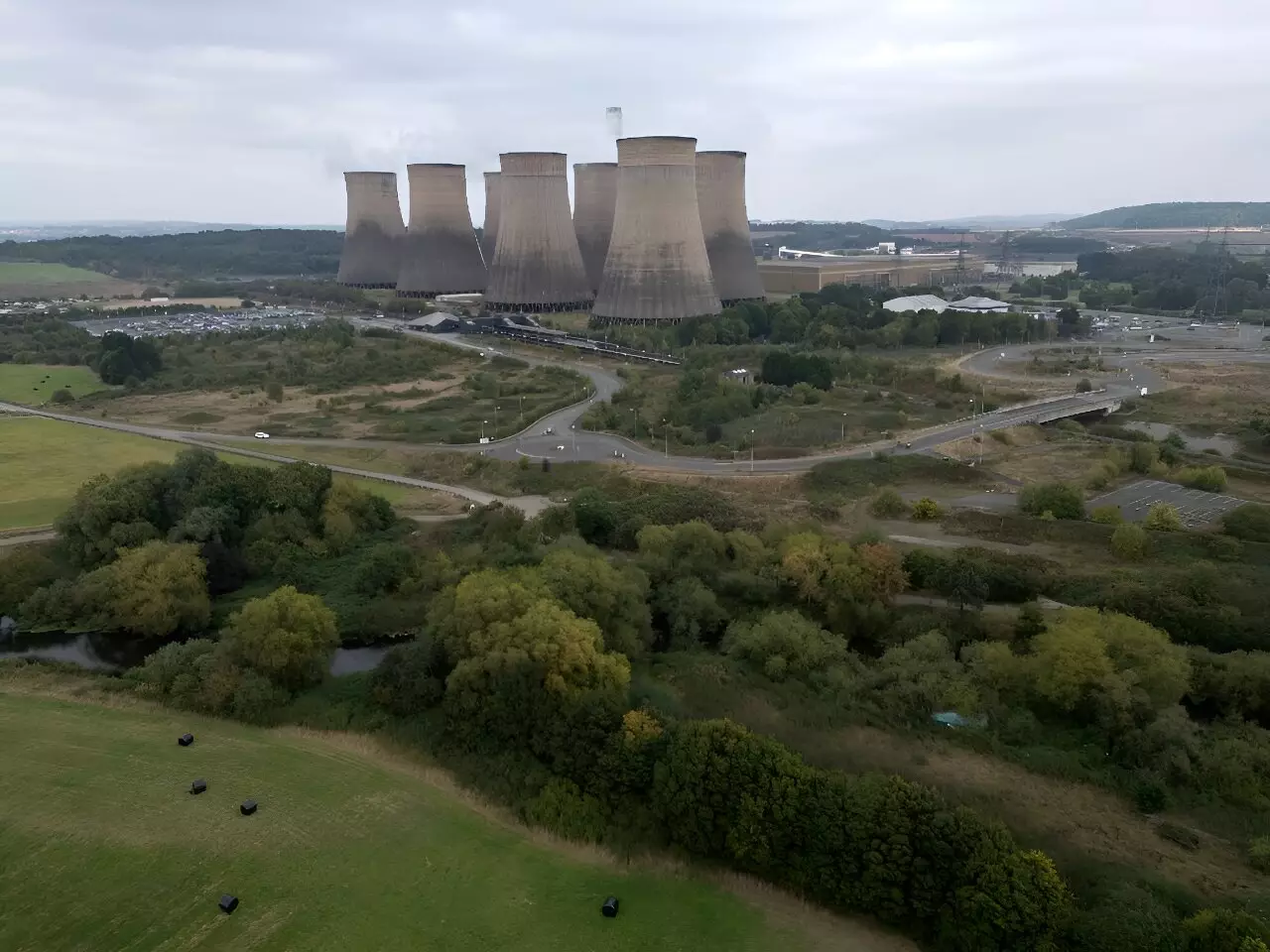The impending closure of the UK’s last coal-fired power station, Ratcliffe-on-Soar, heralds a significant milestone in the country’s journey toward sustainable energy. This event is not merely the shutdown of a facility; it marks a watershed moment for the UK as it becomes the first G7 nation to entirely extricate itself from coal reliance for electricity generation. The historic significance of this closure extends beyond the operational changes within the energy sector; it encapsulates the nation’s broader commitment to combat climate change and transition toward a greener economy.
Energy Minister Michael Shanks emphasized the optimistic perspective of this transition, stating that while the coal era is concluding, a new phase filled with opportunities and “good energy jobs” is commencing. This sentiment underlines the dual importance of environmental accountability and economic rejuvenation, highlighting that the energy landscape can transform into a platform for innovation and job creation.
This closure not only echoes the UK’s ambitions to decarbonize electricity production by 2030 but also aligns with the audacious goal of achieving carbon neutrality by 2050. The historical reliance on coal as an energy source dates back to 1882, when the world’s first coal-fired power station was established. Over the years, coal played an instrumental role in shaping the UK’s industrial landscape, acting as the backbone of its energy mix for much of the 20th century. However, as environmental concerns began to rise, the sector faced increasing scrutiny and regulatory measures aimed at curbing pollution.
The decline of coal usage has been stark, dropping from representing 70% of the electricity mix in the 1980s to a mere 1% last year. This dramatic shift illustrates the effectiveness of policies aimed at reducing greenhouse gas emissions and underlines a growing public and governmental consensus regarding the need for renewable energy sources.
Transitioning Workforce and Future Developments
As Uniper, the owner of Ratcliffe-on-Soar, enters a two-year decommissioning period, the fate of the plant’s workforce becomes a pressing concern. The transition aims to ensure that the 350 employees and contractors either find new roles within the company or exit with redundancy packages before 2026. This underscores the potential social repercussions of such a significant energy shift. Forward-thinking planning and investment in workforce retraining programs will be crucial to mitigating job loss and ensuring that these workers can transition into new, sustainable roles in the emerging energy landscape.
The projected evolution of Ratcliffe-on-Soar into a “carbon-free technology and energy hub” reflects a broader trend seen across the nation. Increasing investment in renewable technologies, including offshore wind and tidal energy, signifies a commitment to innovating and diversifying the energy mix. Analysts suggest that a growing focus on renewable resources could catalyze economic growth, ultimately playing a crucial role in job creation.
Britain’s bold move serves as a precedent for other nations grappling with their dependence on fossil fuels. Doug Parr, policy director at Greenpeace UK, remarked that the UK’s decision to eliminate coal dependency is a model for others to emulate. With countries like Italy, France, and Canada setting their dates to phase out coal, the UK has ignited a vital conversation on the need for global collective action against fossil fuel dependency.
However, the battle doesn’t end with coal. The ongoing challenge lies in addressing the reliance on oil and gas, necessitating an even more aggressive approach to transitioning to an entirely renewable-based energy system. The government’s recent election victory has fueled ambitious plans to further decarbonize the energy sector, indicating an urgent need to shift focus from fossil fuels to native renewable energy solutions.
As the UK turns the page on its coal usage, it is vital to recognize this transformation as not merely an energy shift but as an integral part of a larger global movement toward sustainability. The closing of Ratcliffe-on-Soar symbolizes a powerful commitment to reassess and reform the country’s energy policies, ultimately fostering an environment of innovation, job creation, and environmental stewardship. The transition presents both challenges and opportunities, but with strategic planning and public engagement, the UK can lead by example, shaping the future of global energy for good.

